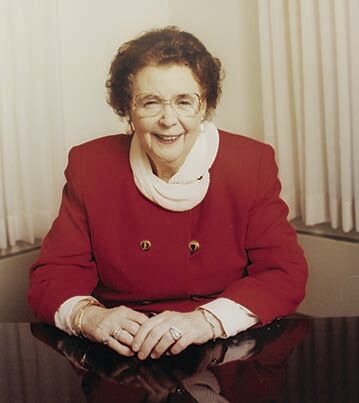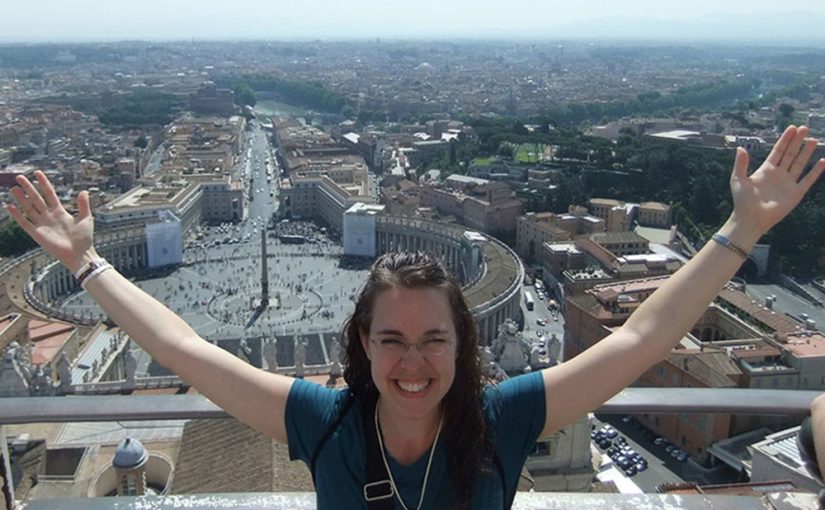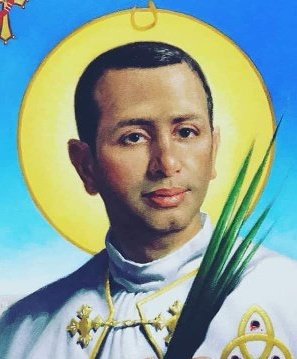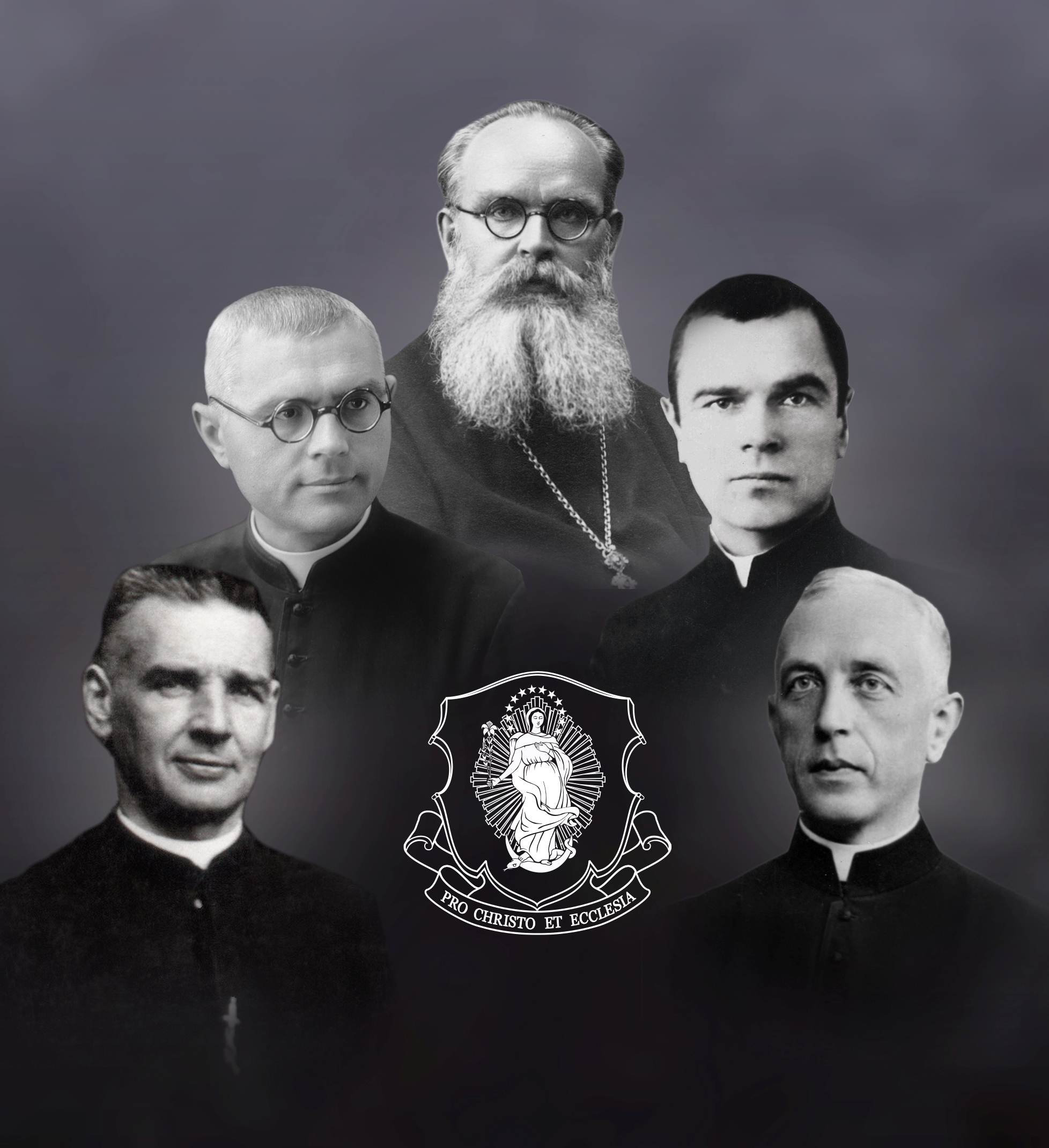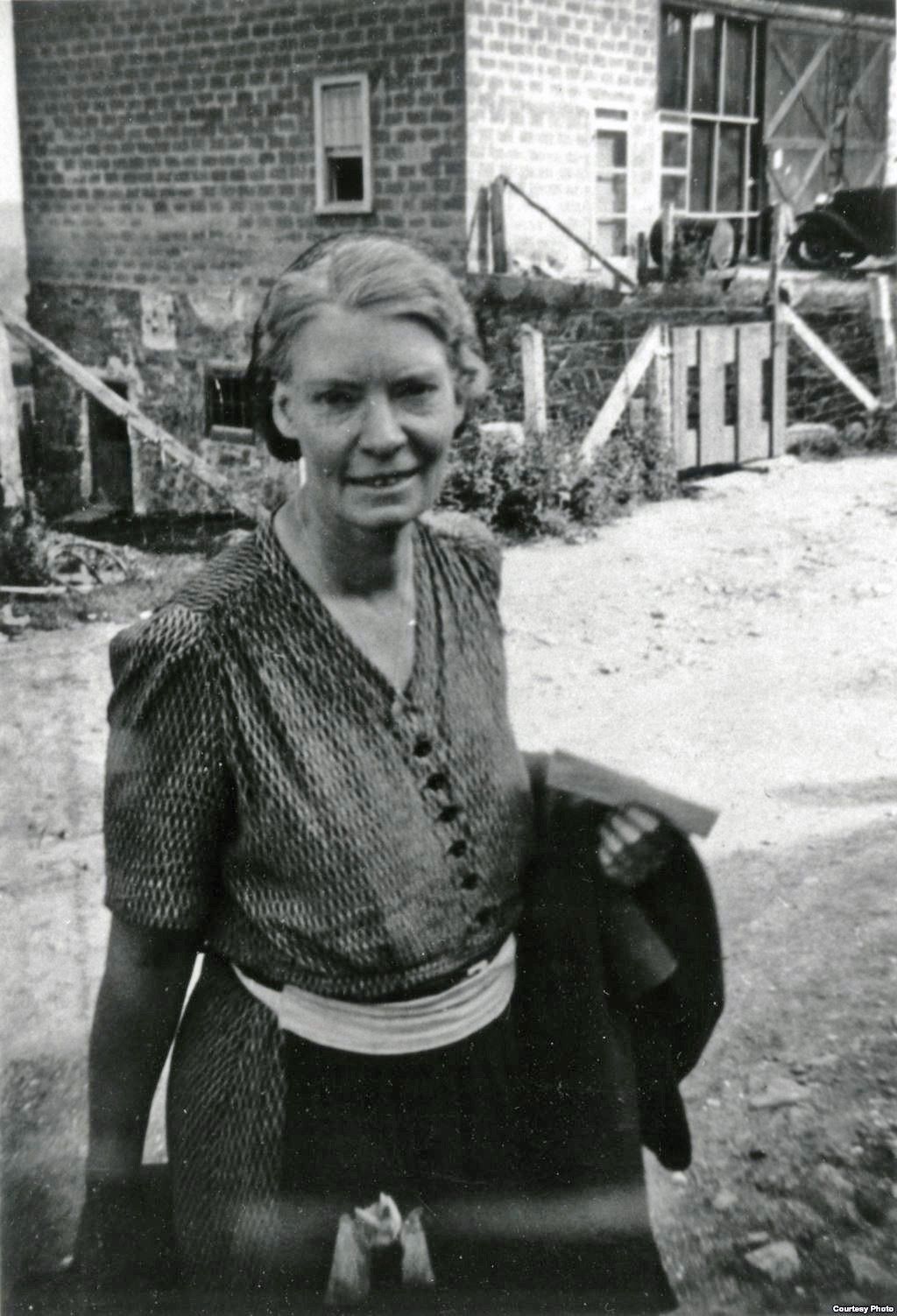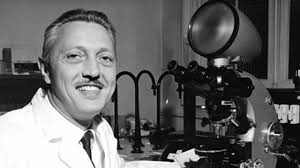Since we had the canonization of Bartolo Longo on October 19, the first layman of the Equestrian Order of the Holy Sepulchre of Jerusalem to be so recognized, I wondered who are the others. It turns out we have two other laypeople be studied for canonization: Venerable Servant of God Enrique Ernesto Shaw (Argentina) and the Servant of God Gertrude Shaw (Erie, PA, USA).
 Here is what I can find on Enrique Shaw: he was a holy business man and that Pope Francis approved of his cause. Cardinal Filoni, Grand Master of the Order of the Holy Sepulchre wrote on Shaw here. More to come on Shaw.
Here is what I can find on Enrique Shaw: he was a holy business man and that Pope Francis approved of his cause. Cardinal Filoni, Grand Master of the Order of the Holy Sepulchre wrote on Shaw here. More to come on Shaw.
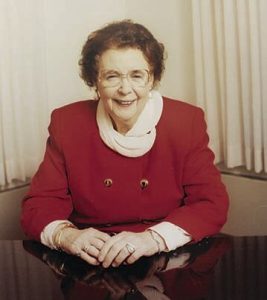 But on Barber we know:
But on Barber we know:
Born September 16, 1911
Becomes a Dame of the Holy Sepulchre in 1991
Becomes a Dame Commander of the Holy Sepulchre in 1995
Becomes a Dame Grand Cross of the Holy Sepulchre in 1997.
Dies April 29 2000
Cause for canonization opened in the Erie Diocese in December 1991.
The edict opening the Cause was displayed in St. Peter Cathedral in December, 2019; approval from the Vatican, which issued a “Nihil Obstat” to indicate that no obstacles “stand in the way” of the cause proceeding; and a presentation and vote by the United States Catholic Conference of Bishops. The group of more than 200 active and retired U.S. bishops approved the advancement of Dr. Barber’s cause after a presentation at their annual Fall Plenary session on Nov. 12, 2024 in Baltimore, MD.
Prayer for the Beatification and Canonization of Gertrude A. Barber
Merciful Father,
You guided your servant, Gertrude Barber,
in bringing hope to children and families who faced
the often overwhelming challenges of living with autism and disabilities,
while inspiring us to recognize all individuals as people of God.
We know you hear our prayers as we gather in Your name.
Through her intercession, please grant the intention
I ask in Jesus’ name (state your intention,)
if it be in accordance with Your Divine Will.
If it is in Your design that Gertrude be glorified by the Church,
so as to further her extraordinary mission, show us Your will.
Grant us the grace to hear your answer and commit ourselves to take up her
cause by the merits of Jesus Christ, Our Lord, Amen.
Imprimatur: The Most Rev. Lawrence T. Persico, J.C.L. , Bishop of Erie , 11 December 2019.
Those of us in the EOHSJ ought to pray for the advancement of these causes of sanctity.
